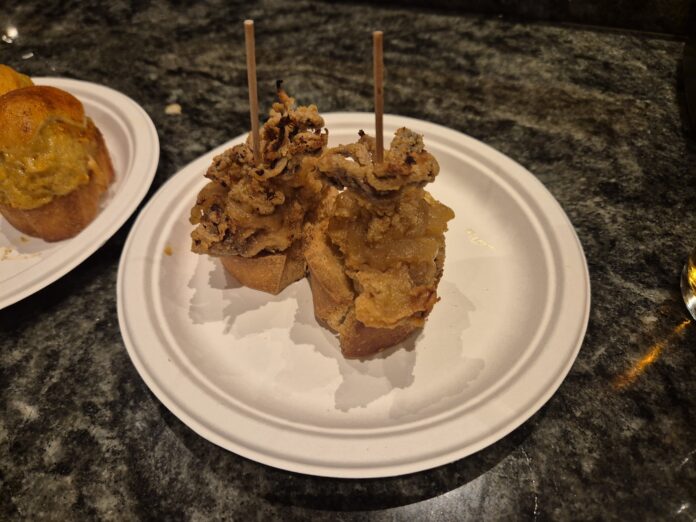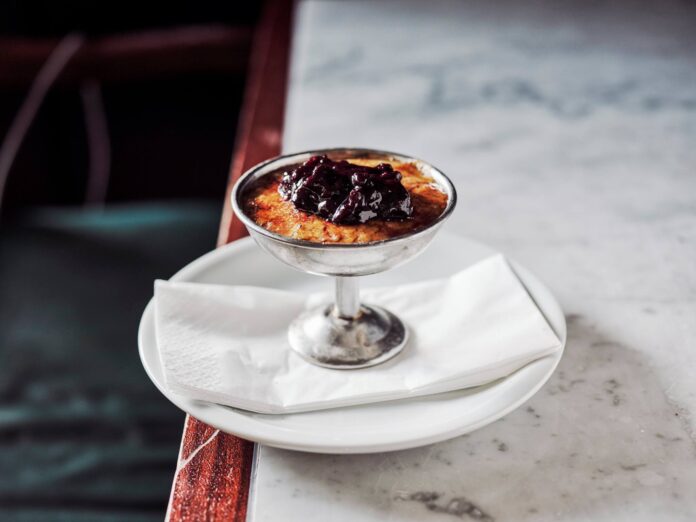
Feeling inspired by TV shows like The Great British Bake Off? Think you can bake better than those bearded bread-making artisans? Soggy bottom only something you’ve suffered from not drying off properly post-swim? Well, if you think you’ve got what it takes to become a rising star in the baking world, then you’ll need to read our bite-sized guide on how to kick things off. From telling the tax man what you’re cooking up to sharing your beautiful bakes socially, here are five IDEAL tips on starting a home-based baking business.
FIGURE OUT YOUR NICHE
There has been a huge rise in the number of artisan bakers and cake makers in recent years. Moreover, rather than mass-produced products, consumers are increasingly drawn to artisan treats made from delicious natural ingredients. As such, the baking business world is a competitive one, and to stand out, it’s essential to figure out exactly what you’ll focus on. Will it be cupcakes or celebration bakes? Are you going to offer an exclusively gluten-free or vegan selection? Is properly proofed sourdough your ticket to the good life?
While you figure out your niche, also consider the ingredients you’ll be sourcing (one of your highest costs) and, in many ways, the most honest way to get your brand’s message across. Will you be sourcing your eggs, butter, and milk from local farmers or going to wholesalers? Do you plan to use the highest quality, fair trade chocolate money can buy? The ingredients dictate the message and your niche in many ways.

HONE YOUR SKILLS & INVEST IN SOME TRAINING
Sure, you may be a regular Mary Berry at the mixer and have tons of natural talent and intuition to draw upon. However, a certain amount of training will help you evolve from a baking enthusiast to a master chef pâtissier.
There’s so much precision and dedication required which can’t be produced simply through a sixth sense with the scales, so some proper training is vital in making the step up from hobbyist to a money maker.
To refine your skills further, try to arrange some work experience in a bakery to see how the professionals work their magic (and manage their time, their space, clean down, and all the other boring, essential stuff). This is also the simplest path to a better understanding of food safety legislation and preparation regulations, which you’ll most certainly
LICENCES AND HEALTH REQUIREMENTS
One of the most tedious but imperative parts of opening any foodie business is to make sure you sort out and sign all of that dreaded red tape. First of all, you’ll have to register your business with HMRC and inform your landlord or mortgage lender you’ll be running a bakery business from home.
You’re also legally obliged to get in touch with the local council and register your premises with the local authority’s environmental health service around a month before you start trading. Someone will then come to inspect your kitchen and home suitable for food preparation.
That’s not all. You’ll also need to get a food hygiene & safety certificate to build consumer confidence in your brand. And yet another necessity is home business insurance as well as public liability insurance and product liability insurance, which can cover you should someone fall ill after eating your baked goods or you accidentally damage something while delivering your cakes. Basically, there’s a lot of bureaucracy to get your head around, so get cracking on more than your eggs as soon as possible.
Aside from licenses and health requirements, you might want to consider getting business insurance. For instance, baking or cake business insurance can protect you from unexpected claims for employee or customer injuries and accidents. It also covers your baking equipment, laptop, stock, and other things you need to run your business, which is perfectly suitable for avoiding a financial crisis.

GET THE RIGHT EQUIPMENT
Baking is a science, and an exact one at that. Before you can start selling your baked goods on a big scale, you’ll need to scale your kitchen up accordingly to meet demand. Getting the appropriate equipment is a huge part of this.
Home ovens are temperamental beasts, that’s for certain, and need to be understood as individuals. One oven’s 200°C is another’s 180°C, so get yourself a commercial baking oven for more predictable, reliable results.
A retarder prover cabinet is worth the investment, too, as it will allow you precise proofing programming, temperature control, and hygrometric adjustment. A walk in freezer with racks of dough trays will also allow you to store your dough and ingredients at the right temperature.
When choosing the right equipment for your home-based baking business, it’s crucial to take due diligence in researching to buy the best quality tools you need at reasonable prices. You can start your search online. Check expert recommendations online from baking masters on social media networks or dedicated baking websites.
Read the blogs or watch the videos of expert chefs, and you’ll find the brand name of the tools and equipment they use. Moreover, check product review brand-neutral sites to check the best features and benefits and weigh the pros and cons of your prospective baking equipment brand.
GET CREATIVE ONLINE & KNOW THE MARKETING MIX
The mix of ingredients in the kitchen isn’t the only combination you’ll need to know about for your business to succeed. You’ll also need to get your head around the 4ps of the marketing mix – product, price, place, and promotion, and harness the power of each to your advantage.
Visual marketing is certainly where the consumer’s attention is most succinctly caught these days, and its importance is growing with each passing year. People eat with their eyes and taking the time to create some memorable ‘come eat me’ packaging and learning the basics of food photography could be the difference between your business rising or sinking.
In addition to that, being contactable is a huge part of marketing nowadays. With everyone owning a phone or computer, you simply can’t afford to neglect your calls, emails, and online website. A
business phone service will allow people to get in touch and ask questions, set up orders or delivery, and be reassured before they place their order. A website could give people a more in-depth review of your products to build trust in your services, while email is also a good way to reach out to customers with offers, newsletters, and other marketing tools to get their attention.
The photos that you share on your website and via social media will be essential in generating and growing your business so take appropriate care of this side of the process if you want to see more than only pounds of flour in the future.
THE BOTTOM LINE
Starting a home-based baking business entails careful planning. You have to create a niche to stand out from the tight competition. Once you have the right baking equipment, tools, licenses, health requirements, permits, and insurance, you can start promoting your business with a good combination of digital and offline marketing strategies.





